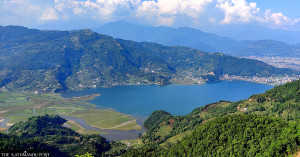Miscellaneous
BBA for future managers
Over the past two decades, management education in Nepal has come a long way, with large number of colleges and universities offering a wide range of courses.
Over the past two decades, management education in Nepal has come a long way, with large number of colleges and universities offering a wide range of courses. Management, understandably, has been one of the most sought after degree in higher education as it gives hands-on techniques to students to take up managerial and leadership roles in different organisation, increasing their employment prospects.
Management education provides students with managerial and entrepreneurial skills, leadership qualities and problem solving abilities. Especially for high school graduates, there are a plethora of choices while pursuing management courses in the bachelor’s level. The choices include Bachelors in Business Administration (BBA), Bachelors in Business Studies, Bachelor in Hotel Management, Bachelor in Information Management, Bachelor in Travels and Tourism Management, Bachelors in Event Management among others. However, BBA, introduced in the country two decades ago and designed to produce mid-level managers, is the most preferred course among students.
With the restoration of democracy in 1990, Nepal adopted liberal economic policies which accelerated the establishment of industries, banks, insurance companies and large business houses. The increasing demand of skilled work force in the commercial entities instigated Kathmandu University (KU) to introduce the first BBA course in the country in 1997.
The success of the program at KU led Pokhara University (PU) to start a programme from its establishment in 2000, followed by Tribhuvan University (TU) in 2002. Similarly, The Purbanchal Univeristy started operations offring BBA and MBA programmes. At present there are about a100 colleges affiliated with PU, TU, KU and the Purbachal Universitythat are offering BBA programmes. Similarly, there are around two dozens of colleges that are teaching the subject with the affiliation from different universities from the US, India, the UK and Australia. At present, around four thousand students are enrolled in BBA courses across the country.
“Majority of the students who join BBA, believe that this course will make them more competent in the job market,” said Ashish Sigdel, marketing manager of Islington College. “I see lot of truth in it. We have observed that the market prefers BBA graduate to those from traditional management courses.”
The BBA programme aims to prepare students to become competent, skilled, confident and socially responsive professionals who can effectively take on managerial, entrepreneurial and leadership roles in business and
social organizations in today’s competitive
environment.
The BBA program usually includes general business courses and advanced courses for specific concentrations. Some of the areas of specialisation in BBA are marketing, finance, accounting and among others. “When a BBA student graduates from college, s/he will have four types of skills — managerial, accounting, financial and marketing, which no other courses of this level provides,” said Surendera Subedi, principal of Kathmandu Model College. “This is one of the major reasons why the job market prefers BBA graduate to any others.”
The BBA degree offers both practical management education and enough breadth in complementary academic subjects to prepare students to function effectively in complex organisations, small to medium enterprises or the public sector. “Regularly updated courses, unorthodox teaching methods, enough co-curricular activities are the other features of the BBA programme,” added Sigdel. “In nutshell, it is course designed to hone the skillsets of aspiring managers.”




 26.89°C Kathmandu
26.89°C Kathmandu









